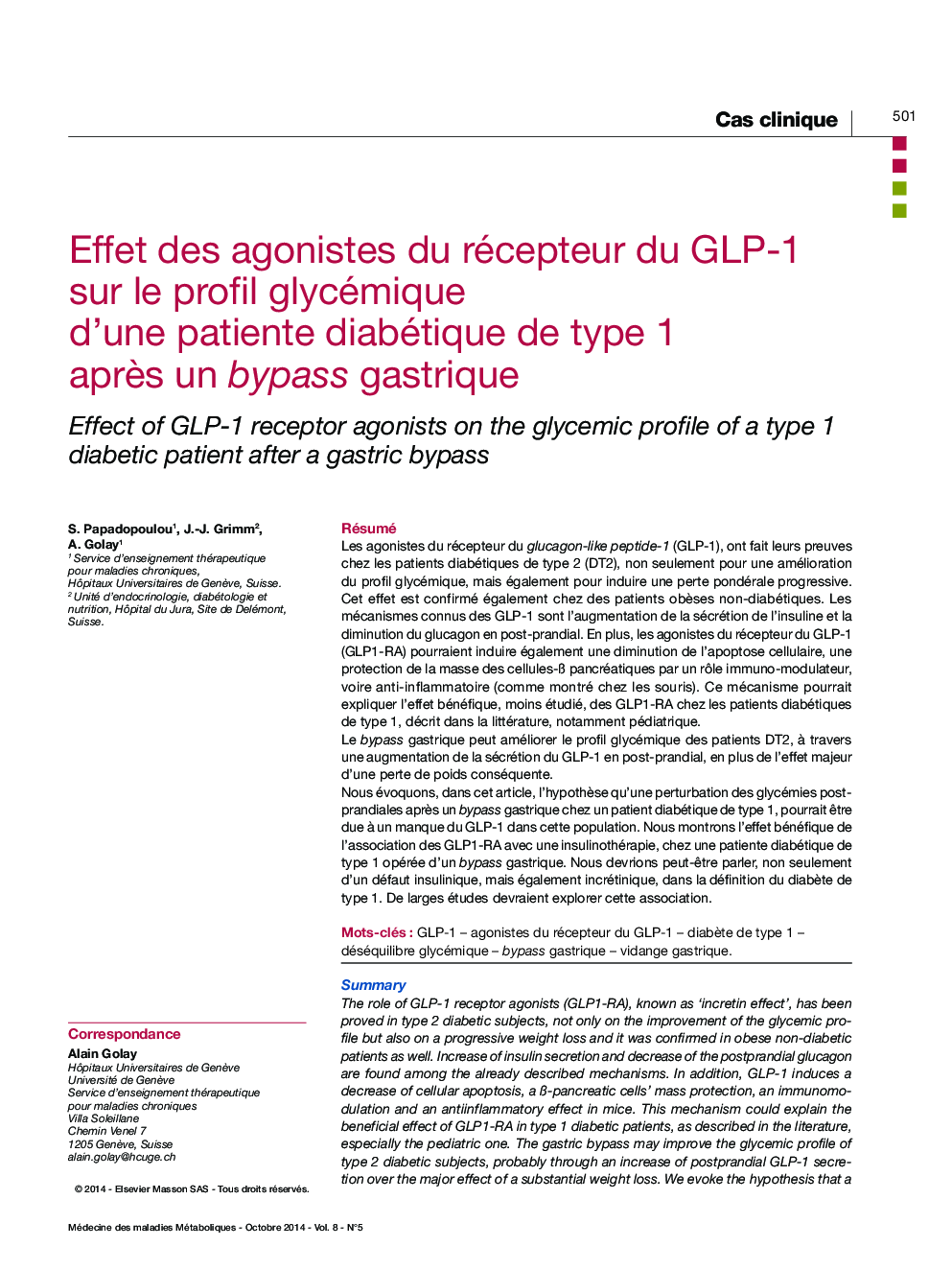| Article ID | Journal | Published Year | Pages | File Type |
|---|---|---|---|---|
| 3274459 | Médecine des Maladies Métaboliques | 2014 | 4 Pages |
Abstract
The role of GLP-1 receptor agonists (GLP1-RA), known as 'incretin effect', has been proved in type 2 diabetic subjects, not only on the improvement of the glycemic profile but also on a progressive weight loss and it was confirmed in obese non-diabetic patients as well. Increase of insulin secretion and decrease of the postprandial glucagon are found among the already described mechanisms. In addition, GLP-1 induces a decrease of cellular apoptosis, a β-pancreatic cells' mass protection, an immunomodulation and an antiinflammatory effect in mice. This mechanism could explain the beneficial effect of GLP1-RA in type 1 diabetic patients, as described in the literature, especially the pediatric one. The gastric bypass may improve the glycemic profile of type 2 diabetic subjects, probably through an increase of postprandial GLP-1 secretion over the major effect of a substantial weight loss. We evoke the hypothesis that a perturbation of postprandial glycemia after gastric bypass at a type 1 diabetic patient, might be due to a deficit of GLP-1 in this population. We show the beneficial effect of the association between GLP1-RA and insulin therapy in a type 1 diabetic patient operated for a gastric bypass. Maybe we should talk not only about a defect of insulin but also of incretin secretion in the definition of type 1 diabetes. Extensive studies should explore this association.
Keywords
Related Topics
Health Sciences
Medicine and Dentistry
Endocrinology, Diabetes and Metabolism
Authors
S. Papadopoulou, J.-J. Grimm, A. Golay,
